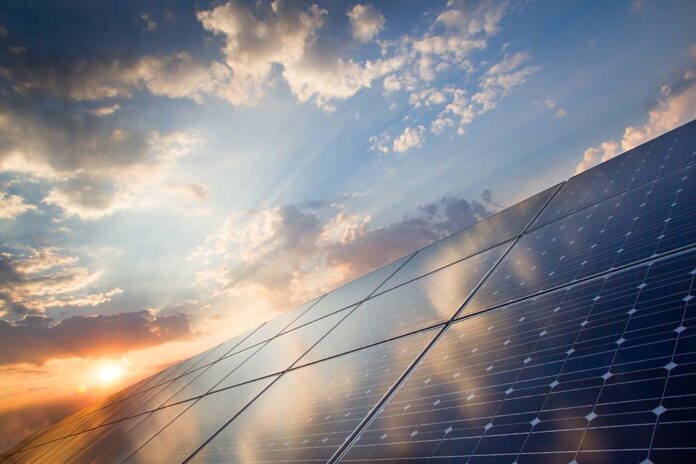An initiative which is expected to save as much as 50 tonnes of CO2 per year has been announced by Govia Thameslink Railway (GTR).
The operator, which manages Southern, Thameslink and Great Northern services says it is strengthening its commitment to sustainability by setting up the project in collaboration with community climate action group, Energy Garden.
The project is hoped to generate more than 200,000 kW hours of electricity annually.
The trial project will see London’s Streatham Hill depot turned into a local source of renewable energy, with 526 solar panels put in place on its roof. It is projected to save 884 tonnes of carbon and generate 4,165,000kWh of electricity over a 20-year period.
If it proves successful, it could see GTR extend the eco-friendly energy generation initiative to more depots in its network.
The panels will be installed by the Community Benefit Society Energy Garden, which works with more than 50 community groups across the rail network, with the profits being used to support community development.
About 42 per cent of the electricity generated on the roof throughout the year will be sold directly to GTR to power the daytime usage of the Streatham Depot. The remaining energy not used will be exported by Energy Garden to other businesses keen to improve their community and sustainability credentials. A Power Purchase Agreement has been signed with clothing company Patagonia and Younity (a joint venture between The Co-Op & Octopus Energy), which includes an additional social premium for energy purchased.
The project was inspired by GTR’s regular sustainability forums, which encourage stakeholders to offer feedback and ideas for improving the environmental impact of the network. The trial will play a role in the company’s ambitions to reduce carbon emissions by 2035 and become a net zero business by 2045, as part of the wider Go-Ahead Group Climate Change Strategy, launched in July.
Over 20 years, the combined income is set to generate more than £100,000 – which will be used to fund Energy Garden’s delivery of schools’ education, youth training programmes and community gardens on the rail network.
Infrastructure director, Govia Thameslink Railway, Keith Jipps, said: “This project offers so much. We’re utilising a large roof area and providing a great platform for solar panels, which in turn creates something of tangible value for the community and our environment, while also supporting our long-term journey to become a net zero company. It’s been really exciting to work with a team so clearly driven by creating community value with such an innovative approach.”
Founder & CEO of Energy Garden said, Agamemnon Otero MBE: “We are proud to work with GTR to install this solar array and generate funding for our education and greening programmes. Hundreds of thousands of passengers interact daily with energy gardens on the railway. The Energy Garden Share Offer allows passengers to take ownership of their commute and transition the railway to a net zero future.”
Environmental action and initiatives director at Patagonia, Beth Thoren, said: “Getting this agreement in place demonstrated to us the complex challenges that community energy projects face in the UK. We hope that, by going through this process, we have opened doors for businesses, of all sizes, to enter their own agreements with Energy Garden and other community energy projects. Patagonia’s UK stores have a small footprint – as there’s just two of them, and a Manchester showroom – but this Power Purchase Agreement has a greater impact, making it easier for others to purchase community energy.”
Keith added: “If the UK is to achieve its net zero ambitions and further decarbonise, we all need to consider how we can lessen our current dependence on personal vehicles and make more of public transport. Across GTR, we are constantly working to improve our services and encourage people to use rail, as one of the most sustainable modes of transport. We’re delighted that our Sustainability Forums are providing a platform for innovative sustainability ideas to be generated and brought to life. Cars account for 55% of all transport emissions, compared to just 3% from bus and 1% from rail so the focus needed here is significant.”







































 0113 2082620
0113 2082620 info@railbusinessdaily.com
info@railbusinessdaily.com 15 Mariner Court, Wakefield WF4 3FL
15 Mariner Court, Wakefield WF4 3FL

